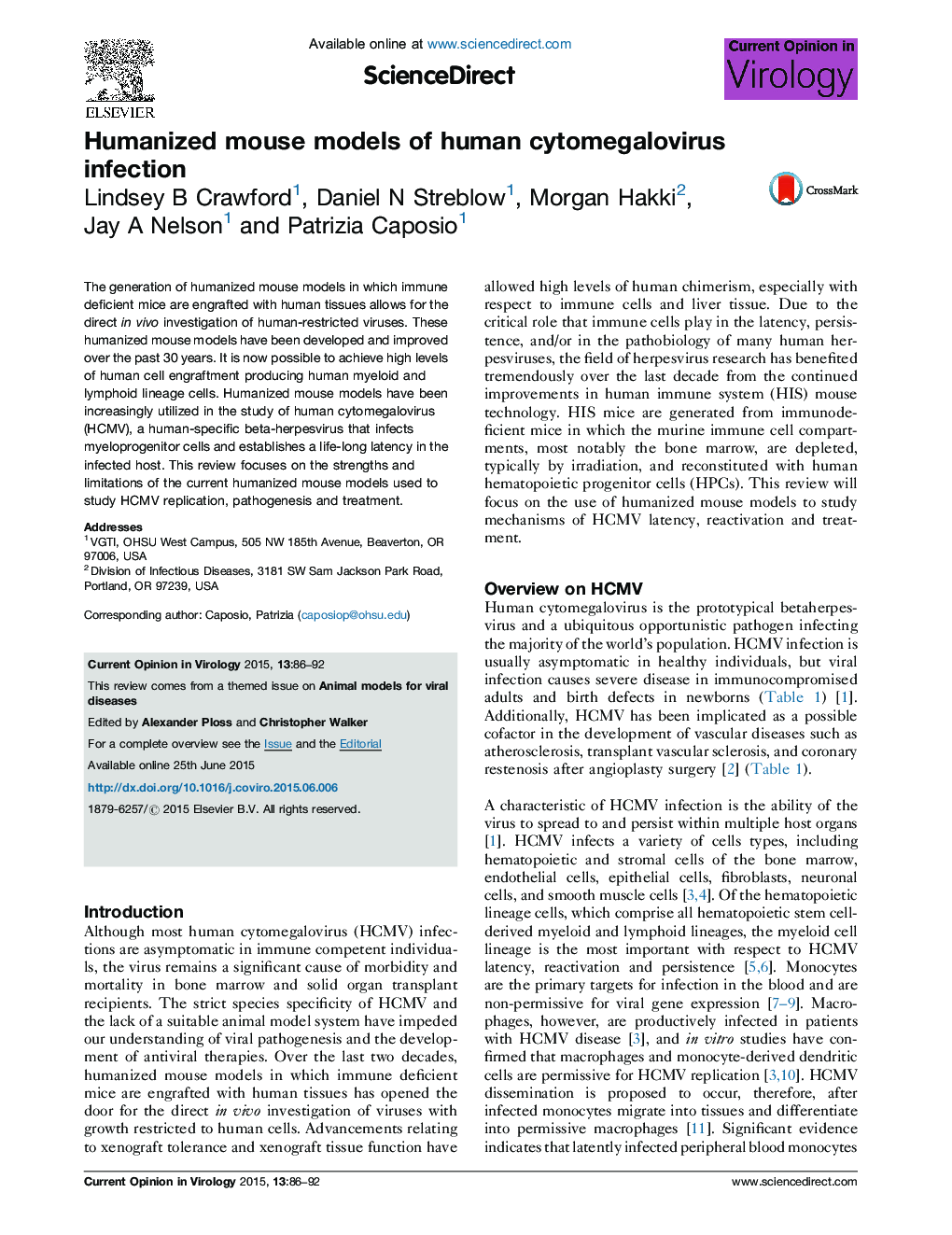| Article ID | Journal | Published Year | Pages | File Type |
|---|---|---|---|---|
| 2473270 | Current Opinion in Virology | 2015 | 7 Pages |
•HCMV is a ubiquitous and opportunistic betaherpesvirus.•Development of humanized mice allows for the study of human-restricted viruses.•Myeloid lineage cells are critical for HCMV latency, reactivation, and persistence.•Humanized mouse models are tools to study HCMV-associated diseases and treatments.
The generation of humanized mouse models in which immune deficient mice are engrafted with human tissues allows for the direct in vivo investigation of human-restricted viruses. These humanized mouse models have been developed and improved over the past 30 years. It is now possible to achieve high levels of human cell engraftment producing human myeloid and lymphoid lineage cells. Humanized mouse models have been increasingly utilized in the study of human cytomegalovirus (HCMV), a human-specific beta-herpesvirus that infects myeloprogenitor cells and establishes a life-long latency in the infected host. This review focuses on the strengths and limitations of the current humanized mouse models used to study HCMV replication, pathogenesis and treatment.
